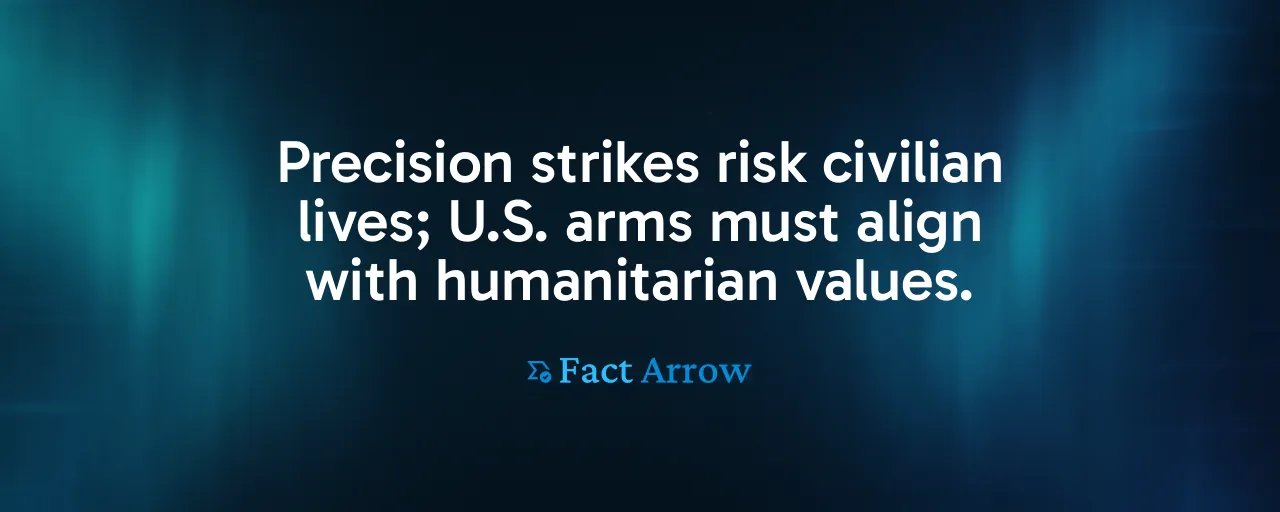A Bold Strike, A Sobering Moment
On July 9, 2025, Israeli Prime Minister Benjamin Netanyahu stood in a Pentagon meeting room, praising the U.S. military's role in Operation Rising Lion, a joint strike that targeted Iran's nuclear facilities just weeks earlier. The operation, involving U.S. B-2 bombers and Israeli precision strikes, delayed Iran's nuclear ambitions by years. Beneath the celebratory tone, a pressing question emerged: at what cost does such military might come?
The operation showcased the U.S.-Israel alliance's unmatched firepower. American pilots and missile defenses, alongside Israel's skilled forces, executed a complex mission with precision. The broader implications, from civilian risks to regional stability, demand a closer look. The Pentagon's warm reception of Netanyahu signals a deepening partnership and raises urgent concerns about unchecked arms flows and their impact on human lives.
This moment extends beyond military success; it offers a chance to rethink how the United States wields its influence in the Middle East. High stakes are involved, as unchecked support risks fueling cycles of violence. A balanced approach could pave the way for lasting peace. The path forward lies in aligning military aid with humanitarian values, ensuring power serves people and supports strategic goals.
Recent events, like the ongoing Gaza conflict and Iran's proxy threats, underscore the need for clarity. The United States has long backed Israel's security, but the human toll of such support, particularly in civilian-heavy zones, cannot be ignored. Public sentiment, especially among younger Americans, increasingly calls for policies that prioritize human rights alongside defense.
Operation Rising Lion sent a message to Iran, and it also sent one to the world: military strength requires moral responsibility. The Pentagon's role in this operation, and its aftermath, invites a broader conversation about how America shapes peace in a volatile region.
The Human Cost of Unchecked Power
The strikes on Iran's Fordow and Natanz facilities were precise, but precision does not erase broader consequences. In Gaza and Lebanon, where Israeli operations have intensified since October 2024, civilian death tolls continue to climb. United Nations reports document thousands of non-combatant casualties, raising alarms about proportionality and international law.
U.S. arms, from bunker-busters to missile defenses, play a central role in Israel's arsenal. The Congressional Budget Office estimates that post-9/11 U.S. military engagements, including aid to allies, have cost nearly $8 trillion. These resources, often flowing without stringent oversight, enable operations that can spiral into humanitarian crises, as seen in Gaza's overwhelmed hospitals and Lebanon's displaced communities.
Historical patterns offer a warning. The 2003 Iraq invasion, driven by U.S. military might, destabilized the region for decades, fueling extremism and mistrust. Today's actions risk similar blowback. Iranian drone salvoes following Rising Lion, though limited, hint at the potential for escalation. Without careful policy, the cycle of retaliation could engulf the region.
Public opinion reflects growing unease. Surveys show only 34 percent of Democratic voters support unconditional aid to Israel, a sharp drop from prior decades. This shift signals a demand for accountability, particularly as images of civilian suffering flood global media. The United States cannot ignore these voices if it hopes to maintain credibility as a global leader.
Advocates for human rights argue that military aid requires clear conditions. Ensuring compliance with humanitarian law, such as protecting civilian infrastructure, is ethical and strategic. A policy that prioritizes lives over unchecked power strengthens America's moral standing and reduces the risk of long-term instability.
The Pentagon's partnership with Israel, while rooted in shared security goals, requires evolution. Joint operations like Rising Lion demonstrate capability, and they also highlight the need for oversight to prevent misuse of U.S. weapons. Transparency in how arms are used, and their impact on civilians, is non-negotiable.
A Better Way Forward
A liberal vision for U.S. foreign policy centers on diplomacy and accountability, not merely strength. Reviving multilateral frameworks, like an updated Iran nuclear deal, offers a path to de-escalate tensions. The 2015 JCPOA, though imperfect, curbed Iran's nuclear progress through inspections and sanctions relief. A similar approach today could exploit the pause created by Rising Lion.
Congress has a critical role. Legislation like the United States-Israel Defense Partnership Act of 2025 should include robust reporting requirements. Tying aid increments to verified compliance with human rights benchmarks, such as ensuring humanitarian corridors in Gaza, balances security with ethics. These steps align with international calls for proportionality, as voiced in recent U.N. resolutions.
Regional peace requires broader inclusion. A multilateral conference involving Gulf states, Israel, and Palestinian representatives could address missile threats and economic disparities. Trilateral projects, like joint water infrastructure for Palestinians and Israelis, promote stability while respecting security needs. Such initiatives signal that peace builds through cooperation, not solely deterrence.
Humanitarian aid also takes priority. Gaza's reconstruction, strained by ongoing conflict, needs U.S. support. Redirecting a fraction of military budgets to medical facilities and schools could rebuild trust and counter extremism. These investments cost less than prolonged conflict and yield greater returns in goodwill and stability.
Seizing the Moment for Change
Netanyahu's Pentagon visit was a celebration of military prowess, and it also exposed the limits of force alone. The United States stands at a crossroads: continue fueling cycles of violence or chart a course toward principled leadership. The choice is clear: prioritize human lives and diplomacy to build a more stable Middle East.
This shift will not weaken alliances. Israel remains a key partner, but true partnership means shared accountability. By conditioning aid on civilian protections and investing in regional dialogue, the United States can strengthen ties while upholding its values. The world is watching, and history will judge based on actions taken now.
Operation Rising Lion proved what is possible with resolve. Now, that resolve turns toward peace. By pairing strength with compassion, America can lead with power and purpose, fostering a future where security and humanity go hand in hand.
